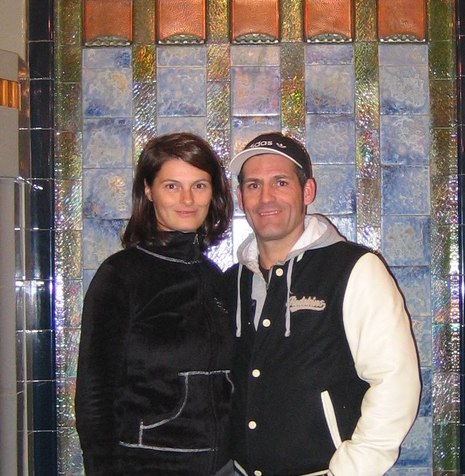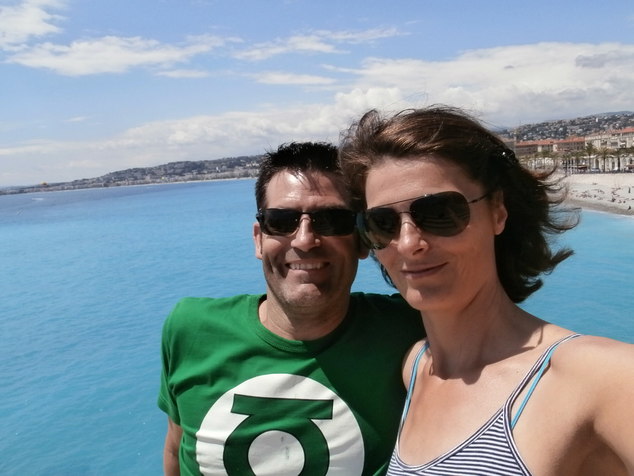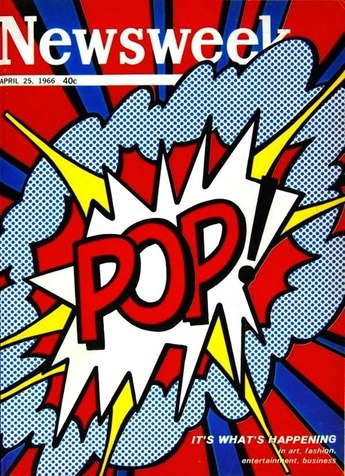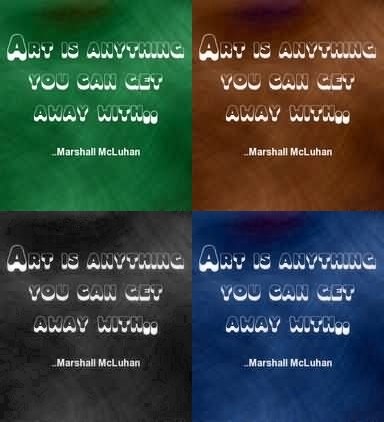Comments
-
Liberté, égalité, fraternité, et la solidarité.I'd say I disagree with everything you wrote in this post. I do not wish to expand, I'll just say that the problem, in my view, is mainly geopolitical, its religious aspect is mostly a symptom. And I'm saying that while I have no problem to admit that the jihadists are part of Islam - or as I have said before, I do not even know what real Islam means. — Πετροκότσυφας
Indeed we disagree at the core of this issue.
Real Islam is not the issue here at all.
Perhaps one can state that the problem is political or geopolitical, but seeing that we are speaking of Islamic States without a separation of church and state how is it at all possible that any political or geopolitical problems would not involve religion (Islam) at it's core?
If the (Islamic) states themselves have no separation of church and state, how is it even possible to consider religion or politics to be a symptom, when by definition it all must be the cause, as they are both the same thing in this context?
As I see it, this claim of it being just political or geopolitical rather than religious is vacuous rhetoric and misleading.
Calling it politics in this context is the very same as calling it religion. It does the problem an injustice to weight it by European standards.
Meow!
GREG -
Liberté, égalité, fraternité, et la solidarité.As I was watching the horror unfold in France, the inevitable 'what would you do?' came to mind. I then think of the debate that takes place with almost every nation and the USA regarding the personal protection that a legal firearm provides. I am not saying that personal firearms would have changed the situation, I just wonder if the knowledge that the audience could be armed, might likely be armed, would have changed the appearance of these events being 'soft targets'. — ArguingWAristotleTiff
This would do nothing whatsoever to deter terrorism.
If anything, this would give cause to violent overreactions; thus increasing the chances of people being shot for really no reason other than fear of something that may be terrorism that is not.
I'm sorry Tiff, but looking at all reasonable statistics personal protection is not increased via private firearms. If anything, the statistics show that the opposite is the case.
No, it wouldn't. A terrorist act aims at inflicting fear. You can do that even if you end up killing no one. — Πετροκότσυφας
Indeed!
Remember the anthrax scares?
All one needed to do was scatter a bit of white powder at an airport and it was closed for hours, disturbing so many lives, placing them in state of fear and terror, as well as costing lots of resources.
Killing people is not the point of terrorism. Dead people have no fear and cannot be set into a state of terror. The terrorist terrorizes the living and not the dead.
Meow!
GREG -
Liberté, égalité, fraternité, et la solidarité.http://english.alarabiya.net/en/News/middle-east/2015/11/14/Arab-states-denounce-Paris-attacks-as-violation-of-human-values-.html
Hopefully, somebody will shed a tear for these too, if they 're not so unworthy — Πετροκότσυφας
I have to admit that this has been a new development in such matters.
Finally there has become more and more an effort for such nations to make a statement against such actions.
What I have not yet seem by any of these nations is an admission that this problem is indeed a problem within Islam and that the Islamic leaders will take action to help rid their faith of this cancer. At least I see some indications that the behavior if no longer ignored, but the pro-active part that needs to be made by these nations fails to be present.
I don't wish to be so cold regarding the bombing in Baghdad, but this is sort of viewed (unfortunately) as a typical day in Baghdad. I hate to say it, but if these nations have taken a silent approach over all the years regarding such a problem within their own state religions, it is a bit much to expect anyone from outside viewing such actions as anything but typical. I hate to say it, but these nations must finally come to grips with understanding that groups like ISIS and such terrorist attacks are a cancer that is from a misinterpretation of Islam and not something that is just 'not Islam'.
I don't wish to trivialize the bombing in Baghdad, but I feel the constant denial of these Islamic states in acknowledging that the problems of these radical terrorist organizations are indeed part of Islam (as a cancer is part of the body infected). Their denial has trivialized such attacks within their borders.
Meow!
GREG -
Liberté, égalité, fraternité, et la solidarité.Nothing short of an equivalent to the Enlightenment in the Islamic world is necessary, in my opinion. — Thorongil
Well...
... it might come as a surprise, but we do agree.
What I find odd or let's say missing in the after shock of this event is that no Islamic leader or representative has said anything whatsoever to state that this event was something worthy of condemnation or any sympathy for the victims. Rather, I have heard 3 (selfish) statements from the Islamic community making a claim (defense) that this is not Islam.
Funny that they do this, as so far there seems to be no claim of who did it, much less anything more than circumstantial evidence that the attackers might have been sympathetic to ISIS.
Can't the Islamic leaders for once make a statement of condemnation of such actions and express sympathy for the victims without selfishly first making a defense PR campaign of 'this is not Islam'?
Perhaps it's simply the community leaders who get in front of cameras who seem to pimp the image of 'this is not Islam', but there really needs to be a more pro-active effort and initiative to state, we have a cancer within our ranks and we need to deal with it, instead of a 'stick our heads in the sand' sense of denial of this is not part of us.
Meow!
GREG -
The USA: A 'Let's Pretend' Democracy?I'll try to give this a go, but I'm not too sure the questions always really apply...
a. Its history of systematic discrimination, deliberate genocide, imperialism?
Uhh... Austria... it's been around for 1000+ years, so it's kind of hard to fit an answer into such a short form. It has sort of had it all.
Austria had kings and queens going into the 20th century (now it is no longer allowed to hold or use such titles - Germany is a bit different). They once had an empire under this royal reign. They sided with the 'bad guys' in WWI and WWII... and indeed had concentration camps, killing Jews, blacks, gays and gypsies (a lot of gypsies).
Currently if one denies this history, especially the 'holocaust' they can receive a prison sentence, as doing so is a crime. Possession of any symbolic images of this history is a crime as well.
At the moment, we are just under 9 million people living in a very small nation. Indeed discrimination is around us, but considering that we have 9 borders and 11 different languages than German to be found within those neighboring countries, we have diversity whether we like it or not.
b. Low voter turn out and citizen apathy?
My first experience here some 24 years ago was at a ski vacation week where a lot of high school kids were attending. When the nightly news came on during dinner the room was silent. Everyone listened and to my amazement the discussion following the news were a great bit about what was just in the news reports. This was a group of 13 to 17 year olds, about 50 of them.
Indeed this has changed a bit, but the youth as well as the adults are somewhat news savvy and informed. If it helps, we have no 'news networks' like FOX News. That would be illegal here.
Also, I have noticed that news in the USA (even non-FOX) has lots of emotional commentary mixed in with news. We do not have that here. The reports report things quite neutral. It's information and not commentary and when indeed commentary is bought out in the news, they let you know that this is indeed commentary.
As for voter turnout... we consider it to be recently 'lowisch'. The recent vote in Vienna had a 74.8% turn out. IT has been in the lower 60's and the high 80's, but nothing like in the USA.
Keep in mind...
Austria votes on Sunday and not Tuesday. Also, if the vote is really huge and there is a possible event that causes problems with Sunday, they can make it both Saturday and Sunday. We'd never consider a vote on a weekday or especially a working day.
c. Republicans / Democrats subvert it?
I'm not really sure what this means or what exactly you are asking.
We really don't have parties that resemble either of the two you have mentioned.
The SPÖ has been the dominate party for many years now. They are a social party (not socialist) and for the most part represent the working classes (except farmers). They have lost a lot in the last 15 years due to stagnation and the presence of professional politicians who appear to be more interested in their own position that actually doing jobs well for the general public.
The ÖVP was the other strong party, but actually has really taken a beating. I have never quite wrapped my head around this, but they are the party of bigger business, somewhat conservative values (yet more liberal that USA Democrats) and the party the farmers tend(ed) to support (very odd). They have more or less committed political suicide in recent year, starting with the obvious ambition to be the ruling party some 16+ years ago where they went into a coalition with the FPÖ (I'll address them soon). This exposed them as being simply politically ambitious and has cost them a lot of votes.
The FPÖ... I have to be careful here. I consider them to be Nazis. They are a populist party that basically runs on fears and slander (nothing to the level of USA political slander, but still slander). The man who put them into the forefront was Jörg Haider. He (had the good taste to) died in an auto accident before all of the scandals could stick to him. Unfortunately with the recent wave of conservative fear and financial issues in the EU they have gain on popularity. The main core of their voters are the old Nazis, bitter low class, the uneducated, and a lot of the unemployable youth. The leaders even appear in low class discos to find support. They are Nationalists and just have a great legal team to clean up their messes. IT is sort of like the Tea Party or the UKIPS (of Great Britain), but with a slick used car salesman approach.
The Greens... exactly what you suspect them to be, but with somewhat more applicable and relevant programs. They have moved in many places to the #3 and even #2 party behind the SPÖ.
The Neos... (nothing to do with Nazis) liberal with politics, conservative with economics. They are a party that encourages education and taking up responsibility. They also would pull out the social support nets of these who appear to simply use the system. They have made fast impact and have gained enough support to have a voice beyond simply criticism on lobbying. They are something to watch out for, but I really don't know enough as of yet to say much about them.
There are another 3 to 6 parties that do gain support, but it depends upon what level of government you are speaking of and none of these have made it into a National Parlament.
This might be interesting...
... Austria has nearly no lobbies. There are only 3 or 4 main groups that have some impact, but upon very specific issues.
As for political campaigns:
The amount of money they can use for a campaign is very limited. There can be no direct slander. They also only are allowed to promote for an election about 6 or 7 months prior to the election. In short... limited bombardment of campaigning.
d. Are Americans too stupid (well, poorly educated--that's kinder) to make intelligent political decisions?
I don't know.
I find that most of them tend to know very little about what it is they are voting for, but then again there seems to be very little actual information out there for them to work with, as most of it is slander and meaningless platitudes.
Americans seem to be very busy simply living and working and they have more concerns than Austrians do. We have guaranteed housing, near free university education, universal high quality health care, a still functioning retirement system... now indeed many of these programs might be for some 'bare bones', but it is far more than the USA system of 'you are on your own'.
Perhaps the interest in government might have to do with seeing the government making a positive and direct contribution in the lives of the citizens. Our taxes are very high, but everyone gets something for that they are paying; thus it is not too bad.
As for stupid... I feel that the youth of today in Austria are as stupid as it can get. Indeed they have information and have learned things (nearly all in theory), but fail in the ability to connect the dots, take responsibility, make an effort beyond the minimum or apply information and ability beyond specialized fields... in short, they lack basic logic. It seems at time that there are a few who are able, but in the sea of the unable they are far to few and far between. Instead of making an effort to do better, they just lower the bar to the point anyone can crawl over it if they happen to be pushed in that general direction.
e. The asymmetrical distribution of wealth?
Austria does have an asymmetrical distribution of wealth, but why it works is simple. The rich here are not as rich as the USA rich and the poor here are not as poor as the USA poor.
I believe our social politics has a lot to do with that being the case.
f. Paralyzed political system?
Again... I don't really know what you mean.
I need more info.
g. The public has been hoodwinked, hornswaggled, and bamboozled by clever PR and advertising technicians?
Hard to say...
... Austria does not have commercials like you do in the USA. Political TV commercials do not exist.
We do have other commercials on TV, but usually in a 30 to 40 minute show there is a maximum of 1 commercial block (if any at all) and if the show is longer or if it is a network from Germany there might be a few more. The shorter sitcoms and stuff never have a single commercial break. Funny thing is a lot of the commercials are about upcoming shows on that networks.
h. Capitalism run amok; rampant corruption of politics?
I'd need a standard of measure for 'amok'. Indeed there is a large degree of a 'free market' here, could be considered capitalism, but how much is 'amok'... ???
We have corruption like any political system has, but our political system is far more transparent than in the USA. It's a small country. There just aren't too many places to hide.
Maybe regarding this... size matters... as in the smaller the better it is to manage and the easier it is to keep it all in perspective.
Meow!
GREG -
Snapshots of us and our companions in life~So...
Ms. Mayor, Jinx (stealth black cat) and Cleo (stupid fluffy tiger) and what I do and do to keep on doing it...










Meow!
GREG -
Bad Art

... and get this:
http://www.ebay.co.uk/itm/NEWSWEEK-Roy-Lichtenstein-POP-ART-April-25-1966-Complete-/231699506279
Even that Magazine with that picture of the 'art work' is now being sold at auction as an 'art work'.
If nothing else, it was a good investment with a 2500% return on the original investment over about 50 years.
Meow!
GREG -
Welders or Philosophers?Welders make more money than philosophers. We need more welders and less philosophers. — Marco Rubio, Florida Senator and presidential candidate — Sapientia
Well...
...Supermodels make more money than US Presidents. We need more Supermodels and less US Presidents.
Perhaps Rubio needs to get on a diet and hit the gym... really hard!

Mob bosses make more money than policemen. We need more mob bosses and less policemen.
Drug dealers make more money than service industry workers. We need more drug dealers and less service industry workers.
Sorry about the strawmen, but hey, we're talking about a politician, eh?
Meow!
GREG -
Bad ArtWarhol's laconic "Art is what you can get away with" I think was directed at Duchamp's use of readymades. — Cavacava
... and was probably a recycled pop statement from Marshall McLuhan.
I was always surprise he didn't write it in four different colors, each with it's own rectangular space presented on a large rectangle like his cans of soup.
 - by MOS
- by MOS
(sorry I couldn't get happier colors, but I just took what I could find... irony? :s )
I sort of have the feeling that "Warhol's laconic" is itself a 'readymade'. ;)
Meow!
GREG -
Bad ArtI don't understand DJ music, and it seems to me 'the band isn't there'. Its akin to taking a lot of other people's paintings and arranging them very cleverly, and I appreciate the skill and even the aspiration of DJ's to become musicians. Kiss, on the other, have a finger on the fret board with every nuance of sound. — Throng
I understand you quite well.
I have my issues with techno, a lot of electronic and have a curious issue with 'drum and bass' where I learned something about myself.
I dislike the vast majority of drum and bass, but there is some of it I can listen to without hesitation and wish the songs were even longer.
Why?
Simple...
... I like drums and I like bass. I have no idea why I can, but I can tell the difference between drum and bass who use traditional drum and bass instruments rather than looping with the help of computers. I especially liked a few of the ideas the groups had, such as Apollo 440, who used two drummers and 2 bassists to create even a more bombastic sounds.
Why this appeals to my sense of art?
Perhaps this is more obvious, but I can tell they use 'real' instruments.
Anyway...
... as for being 'too fast' regarding art, I'm reminded of this scene from 'Lust for Life':
http://www.tcm.com/mediaroom/video/395720/Lust-For-Life-Movie-Clip-Painting-Is-For-Painters-.html
... for whatever that's worth.
Gotta run today and work for some athletes in a weight room... music of choice in the background is crap, but they like it. It's only 3 hours to tolerate.
Meow!
GREG -
Bad ArtI have this problem in philosophy where its like mud, and getting bogged in questions like what is culture. It is a subtle concept steeped in social emblems, but it's one that we're familiar with because we are all part of cultural paradigms with particular norms and acceptable behaviors. It's something we have a sense for because we are entwined with it. We know that shaking hands is an acceptable greeting behavior, for example. It is dynamic but tends to have some form of inter-generational tradition. — Throng
I can buy that without too much trouble... indeed we are very familiar with such a thing in spite of not really being able to define the things. It is a very local an personal concept, so vast in it's facets that stating a definition of giving a definitive answer as to what is must be seems to always fall short; thus leaving one to only postulate what it is or means for they themselves.
Trying not to get ahead of myself here, but this is why I'd suggest we cannot really speak with too much certainty or so definitive as to what is and is not bad art for everyone. Sure we can be familiar with what this is when we see it, but I fear the problem here is that being familiar with something is not the same as knowing with certainty about something.
Anyway...The 'hip hop' of my day was a street culture thing found its way into in disco (and I remember a Blondie (dang white girl; still a New Yorker, though) song rapping about men from mars eating cars), and rap was probably established as a popular music genre by the Grand Master Flash. The next generation carried on with break-dance and, no doubt, other cultural artifacts, but hell, I was into rock music, which is most certainly a blues derivative, and to this day, rockers shred — Throng
Good ol' Blondie (actually that's the name of the group, as her name was Debbie Harry) and 'Rapture'... the first rap song to hit #1.
My take about hip hop and rap is sure there is an argument that it started out with the blues like with the Memphis Jug Band, but I sort of figure it was more a combination of elements in the African American inner city communities such as cheerleading, rope jumping rhymes, military marching, sports chanting and taunting and jazz poetry... like the Last Poets:
I agree that this eventually turned into a (sub) culture, in that it encompassed music, fashion, attitude and so on.
As for shredin' the turntables live?
Maybe this counts, as it is not nearly as easy to do as it seems:
The music, clothing and turns of phrase and other peculiarities create sub-cultures such as rockers and rappers of the early 80s, and there was some consensus between rockers of the day about which bands were really rocking, so we have this sheer knowledge, whether you like it of not, Ritchie Blackmore is spectacular, and despite anyone's personal taste, the man produces great art. Now, when I hear rap, I can hear the quality in the same way as I hear Ritchie Blackmore, and discern who's really off the wall and who's a mere poster boy. I don't like the genre, mainly because it just ain't rock and roll, and so much of it is production, it is only arguably music, but the rare exception is gold. — Throng
Indeed...
... and if I remember correctly metal bands have forever hated disco... and hated KISS for well this 'metal' (disco) sell out:
... oh I'm a Richie Blackmore fan.
I'm also a fan of rap, hip hop and even Men without Hats.
I'm also much into crossovers... such a Public Enemy with Anthrax or The Band covering En Vogue's 'Free Your Mind'.
One of the best rappers out there is Anthony Kiedis (Red Hot Chili Peppers) and one who could have done even more than Kiedis was Mike Patton (Faith No More).
Indeed... that's my taste and I can say from my perspective that I find all of these to be good or bad, but can I speak for anyone else?
I understand people are precious about their personal taste, but if Hendrix is a great artist in anyone's book, and I don't know a soul who would deny that - then there is good art. It doesn't matter if one likes Hendrix music or not. There's the fact that his art is great. What makes it great is beyond technical skill. It conveys a form of truth, honesty, integrity and some sense of the soul. I don't like it enough to buy a Hendrix album, but I know it's the salt of the earth, and I recognise its fine artistry, not as an opinion or as a matter of authority, but as something undeniable. — Throng
I very much think Hendrix was a great artist and I know a good number of people who just cannot listen to him for more than 30 seconds. They think it's just someone who produces ear splitting noises for music.
Who's correct?
I also like to listen to John Cage and Arnold Schönberg. I find that they are indeed great artists, but there are others who cannot listen to them for even 3 seconds. They really think it's just a bunch of ear splitting noises and not even qualifies as music in any way.
Who's correct?
The problem with something being undeniable is that it needs a foundation upon which and argument that is compelling is build. If the foundation is acceptable than anything can be argued to be good or bad or whatever one wishes to claim as undeniable in it's 'whateverness'.
As I have mentioned before, we have a difficulty even fielding a consensus foundation as to what is art, much less then state that artistry is undeniable.
Personally I'm rather pleased we'd share many a similar opinion over what is good artistry, in spite of our ability to field a definition as to what art happens to be with any consensus.
You see... I'm a bit of an absurdist. In the same manner that it is... well... how's that go?
You will never be happy if you continue to search for what happiness consists of. You will never live if you are looking for the meaning of life. - AC
Part of this happiness for me is enjoying and sometimes creating art, as well as appreciating what I find to be artistry. Maybe I'm just naive in that I simply enjoy what I experience in art rather than wish to search for what art consists of (for everyone whether they asked for me to decide this for them or not). If indeed my opinion differs from the 'norm', the 'popular' the 'authority', and even differs from my opinions fielded in the past about whether or not something is art or someone has artistry... good so.
Meow!
GREG -
Bad ArtI don't exactly agree. 'good taste' in art is related to culture, or 'being cultured', which a condition of culture, I suppose, but there is also an element of truth, sincerity and being genuine - this notion of being true to one's self and producing honest expressions - as opposed to appealing to popularity. — Throng
I think there is another problem at hand, that being what is meant by a culture.
It seems a rather easy question to answer until one asks this question:
How many cultures are there?
The problem here is what makes a culture a culture is if other cultures think that a culture is a culture.
Of course a culture can claim to be its own culture, but is it a culture still a culture if no other cultures recognize that this claimed culture is indeed a culture?
OK...
... what makes a culture a culture beyond a recognition of it being a culture?
Isn't it a collective of individuals who share the same sort of notions of experience banding together; thus establishing a popular awareness of this identity as a collective identity, which via the establishment of this collective identity sets up a standard of measure as to what is and is not representative of this collective identity; subsequently resulting in a sort of codified or institutionalized collective identity... whos shared (popular) standards of measure then become an authority in an of themselves?
Seems a bit circular...
Here's another problem (a la chicken/egg):
Which came first art or the culture?
For that matter, must one come first?
If indeed the determination of 'good or bad' art is indeed cultural in it's foundation; then cultures cannot be the result of art or result from an artistic movement, but art and artistic movements can only be the result of cultures.
Here's another issue:
Are we talking about cultures or are we speaking of sub-cultures?
Is (for example) hip hop a culture itself or is it a sub-culture found within other existing cultures?
Is hip hop referred to as a culture due to 'slack language' and is really a sub-culture?
Is the hip hop of Paris the hip hop of Amsterdam?
Is the hip hop of Brooklyn the hip hop of Queens?
In what general terms are we to approach this 'culture' (or is it 'sub-culture') known as hip hop?
Here's the best one:
How have we been granted the ability to speak in very specific terms of 'good or bad' as certain regarding the things claimed to be art there within this 'generalized culture' when all we are using to establish this certain notion is a 'generalized cultural standard of measure' or 'generalized appeal to cultural authority'?
This blend of culture. Being of the culture requires being brought up in the culture, and being cultured is the ability to recognize both honesty and prowess of artistic expression. This is well demonstrated in hip hop culture where Azaelia Banks and Iggy Azalia represent the 'true artist' and the fake one - and despite personal taste, Banks is 'good art' because she is of the culture and others of the culture can tell her expressions are honest, or 'true to life', whereas Iggy is merely popular because she she can imitate hip hop well. — Throng
Are all cultures 'cultured'?
Wouldn't the answer to that question largely (if not solely) depend upon the standard of measure one applies?
Some say, and I argue against this, that hip hop has a long tradition going back to the blues (though I've never seen any hip-hopper shred on the guitar) - and I know hip hop was originally a 'party trick' that came out of New York street parties - an offshoot of DJing, really, and emerged in disco as a way to becoming the genre it became - but it is loosely connected to Black American culture none-the-less. There are fantastic white blues men, though, so due to the length of history, the art becomes 'American', and branches into various genres, which is great, but has been perverted, as all things are, into mere production, where popularity trumps truthfulness - hence the saying, 'sell out'. — Throng
Ahh... regresses!
I remember when it wasn't called hip hop, but rather 'big street beat'. Indeed I have never seen them shred on the guitar, but I have seen a great number of them shred the wax on the turntables.
As for the hip hop coming from the blues... that's fine with me, but where did the blues come from?
Welcome to the cultural (finite)infinite regress. (I say finite, as people have only existed for x number of years, but the information/variables might as well be infinite for us to handle:)
Personally I do not in anyway feel that the expanse or popularity of a particular category of art or notion is exclusive domain of a people, a culture or a race. If we do a (finite) infinite regress of the human species, we might well find there were no particular peoples, cultures or races, thus is all started from the same source.
Didn't ballet come from 'house parties' of the Italian Renaissance courts (15th - 16th century), simply made popular by Catherine de' Medici exporting and 'pimping' the parties and notions in France, where eventually Louis XIV sort of made it codified (late 17th century)?
So hip hop was the result of a 'party trick'?
Big deal...
I'd say hip hop (whatever that is) has come a long way in a short period of time. Hey... we communicate much faster, so the development would be much faster.
Back to the 'truthfulness' bit...
... what exactly does that mean?
I sure hope it doesn't mean that an art form or a culture are to stay put in some sort of stagnated vacuum where adaptation, experimentation, refinement are simply disallowed.
Even worse would be the suggestion that it is the exclusive domain of a people or a culture or a race, as that would lead to racism or ethnocentrism. OUCH!
Also...
... by what (whos) standard of measure are we to establish this 'truthfulness' by artists or those who claim to be artists?
What I have not yet seen is anyone who wishes to make a universal standard of measure of art's goodness or badness use anything as a foundation that itself is not a non universal assumption/assertion/attribution itself.
Culture doesn't cut the mustard (actually spread the mustard).
Truthfulness doesn't either, as what exactly is that truth founded upon?
I fail to see that any of the appeals of an art work being deemed good or bad are anything beyond matters of taste, preference or appeals to self-assumed authority justified upon self-assumed foundations of quality, truthfulness and merit that are simply relative notions and not in any way fixed standards of universal measure.
Art is still whatever on can get away with as art and if they cannot get away with it with one person that only makes it not art to that one person and not to everyone.
Bad art is simply art you find to be bad, every other reason is a relative perception, preference and opinion conditional upon a very specific standard of measure with which the perception, preference and opinion is fielded. There is no universal standard of measure for such a relative notion of what is art, much less if it is good or bad.
Meow!
GREG -
What is the point of philosophy?I think, like many people as well, I don't really understand what exactly philosophy is. I can recognize philosophy when I see it, but if asked to define what philosophy is or what it attempts to do, I would be stumped.
One of the reasons I believe I have been so confused lately is because I think I have misunderstood the goals of science and philosophy. Science is a philosophy, but philosophy is not a science. I was expecting philosophy to be as productive as science has been. Philosophy doesn't do that. Philosophy clarifies concepts, eliminates irrationality, explores new ideas, etc. I don't think there really is a point to philosophy, but unfortunately academic philosophers seem to treat it like it's extraordinarily important. It really is just a recreational activity, for the most part. — darthbarracuda
I have to agree with you here, as in science there is a degree of tangible things/abilities that are far more obvious than there are in philosophy.
A scientist needs to know how specific apparatuses (or apparati) function and how to use them, as well as possess advanced skills in maths (as in knowing what the 'maths hieroglyphics' mean when dealing with relativity and have the ability to speak that maths language - beyond just simple everyday maths skills) or understand more advanced chemistry or biology or physics... you get the point...
A philosopher needs to apply logic and language skills to actual/theoretical experiences and then (possibly) voice a statement or field a question... often sounding like an opinion.
Perhaps the problem is that science is very highly specialized; thus highly specialized skill sets are required, whereas philosophy can bee both very specialized and very generalized at the same time; thus the applications of these specialized skills is overlooked by the generalized skills employed... so philosophy looks like a bunch of 'mere' opinions.
-------------------------------------
Anyway... (here's a joke)
I can recognize a chair when I see on, but if asked to define what a chair is or what it does, I would be stumped.
I Kant do that either! :D
-------------------------------------
Anyway again...
As for the productive aspect:
Are you sure you mean productive or do you mean obvious?
Science has a tendency to produce things, specific things, things you can hold and use, things that are indeed used in events/actions, whereas philosophy is more the concepts/notions/statements behind events/actions.
Philosophers don't require special 'philosophical laboratories' or 'special philosophical equipment' to do what it is they do.
Philosophy is just not as obvious as science; thus we (tend to) attribute more production from that with is more obviously apparent.
-------------------------------------
Here's the deal...
... imagine (If it is at all possible) having any tangible things/events/action obviously scientific that is void of philosophical content?
OK... I can't do that at all.
Why?
The moment a thing/event/action has a value associated/attributed/assumed to or about it... philosophy is unavoidable.
Now imagine that no regard whatsoever is placed upon this value associated with any thing/event/action that is scientific and such a consideration of value was ignored...
... uhh, how horrific that would be, eh?
I feel that this is a very good case for philosophy.
The love of knowledge is the dislove of ignorance... ignorance come from the word ignore.
No matter how dry or boring such philosophical matters might seem, they do indeed have some degree of merit in that they are the disloving of ignorance.
OK... we are still talking about people here, in both philosophy and science. People do tend on occasion to become very self-important and try at all costs to hold onto their positions as being correct. This is why we have 'peer review' in both science and philosophy.
------------------------------------
One more thought about consensus.
Indeed we have a rather strong consensus among scientists that evolution makes sense and is accepted as to be as close to being a fact as is probably possible for something being a fact.
In addition to this, we have a rather strong consensus among philosophers that theistic god/deities are a false notion and that such a being indeed does not exist is a fact as is probably possible for something to be a fact.
Now let's look at the general population...
How much consensus do we have on these two points?
Problem here might well be that the general population can distinguish who is a scientist from a non-scientist with an opinion about science far easier that the general population can distinguish a philosopher from a non-philosopher with an opinion about philosophy.
-----------------------------------
These are just random ranting from off the top of my head (so to say), but I'd be a bit more cautious in tossing such a broad based field as philosophy into a small box.
Both science and philosophy touches every aspect of our lives, but the difference is that science is simply more obvious... but not necessarily more productive or more important. It's a cooperation and not a competition.
My take is that don't allow yourself to be put off of philosophy just because it isn't as obvious or appealing to the public eye.
As for points to things...
... points only exist when we have established them. Nothing in philosophy has a point until we establish one, but to be honestly... nothing in science has a point until we establish one as well... uhh... and isn't the establishment of a point... the establishment of a value... philosophy? So if science has a point at all, it owes that point to the philosophy behind the science, eh? ;)
Just have fun.
Meow!
GREG -
Reading for November: Davidson, Reality Without Reference
Thanks!
I was able to download the whole book... something that will probably take me a year to get through, but hey... it gives me something to (maybe) do.
Cheers!
Meow!
GREG -
Reading for November: Davidson, Reality Without Reference
Thanks, but since I don't want to pay $39 for this I'll have to pass.
Maybe next month?
Meow!
GREG
btw... I just love abbreviations, as in my world TOS means Thoracic Outlet Syndrome. ;) -
Reading for November: Davidson, Reality Without Reference
Does anyone have a link to a copy of this?
Just asking...
... considering my dyslexia I need to start as soon as possible.
Thanks!
Meow!
GREG -
Multiple consecutive postsInterestingly, I've hardly had to moderate anything at all here (or maybe someone else keeps getting there first). (See what I did there :) ). — Baden
That might have something to do with the members. ;)
I did make the effort, when informing people of the site... to take their 'moderating history' into consideration.
Anyway...
... the people inhabiting this site seem to have the ability to make more than 3 posts in a row with content. Something tells me this is not an issue for TPF for the foreseeable future.
Meow!
GREG -
What is the point of philosophy?Are you sure you mean conclusions or do you mean consensus? — Mayor of Simpleton
Yes, that is what I meant. Last time I checked, the scientific consensus for global warming was 97+%. The philosophical consensus for the nature of time, for example,...mixed and it always will be.
Do philosophers gain any new knowledge? Does a philosophical theory count as knowledge? Or is it just unprovable speculation? This is the biggest point I'm getting at here. If there is no way of verifying something, then why assert it? Why even try if it is futile? Has philosophy given us any knowledge? Is there any consensus on anything?
It doesn't make any sense, to me, to formulate complex arguments, debate and critique and assert and attempt to get to the "truth" if it is impossible to get to it. It's completely worthless.
Yes, ethics and political philosophy can help us in the real world, I will give you that. But metaphysics? How the hell do we verify if a theory in metaphysics is correct? We can't! It's absurd!
All it can give us is a warm little feeling of "I think this is the way the universe is" but nothing more. The only confirmation we are going to get from a normative ethical position is "well, this makes sense to me..." There's never going to be an E=MC^2 of philosophy. There's not even going to be an agreement on what the definition of a word is. — darthbarracuda
Well...
... how many consensus ideas held within science were just dead wrong?
I can sort of remember stuff about flat earth and the earth being the center of the universe and stuff like that.
Take care not to confuse consensus with conclusions.
Remember, science does not have all the answers and science is 'fully aware' of this (sorry the personification of science... it's a metaphor).
If science had all the answers it would simply stop.
------------------------------------------
As far as metaphysics is concerned, I personally consider that, as well as theology, to be to philosophy what the vermiform appendix is to biology. It was a once useful organ that, due to evolutionary processes, has been rendered a redundant organ. For the most part it exists in a benign state, but can become inflamed with the potential of causing harm to the body to the point of endangering it's continued existence.
At this point in time, the best know procedure to remedy this harm or endangerment of removal of this redundant organ.
-------------------------------------------
Also...
... apropos unprovable speculation:
Exactly how much 'proof' can we come up with regarding the 'origin' (previous state) of the known universe of time and space, that is the universe that includes the advent of time and space, where we have a language founded upon time and space, and we somehow have to speak (coherently) about a time before time and a space before space?
Sorry I cannot describe this better, as there is not language in our lungs to express things prior to space and time, but science seems to be making efforts to establish theories that have ONLY an internal logical consistency, but NO PROOF.
It is also amazing how people simply freak out about criticism of 'pet theories' of completely unproven and probably unprovable notions.
Philosophy is the love of knowledge — Mayor of Simpleton
I used to think this of philosophy as well. I used to think philosophy was an underrated thing that held countless intellectual secrets. I thought by reading philosophy I would gain knowledge about the world and be wise, know the fundamentals of the universe and become like a guru almost. — darthbarracuda
Have you considered that in spite of philosophy being the love of knowledge that this love is not extended to love of criticism?
Same goes for science...
... the problems you have sited here are not problems of philosophy or science, but of people.
btw...
Since when does philosophy include gurus?
Since when does philosophy somehow create a 'plug and play' connection with being 'wise'?
Indeed... the vast majority of those who have studies philosophy and science would agree they have the feeling that they really don't know all that much, but instead have endless questions that will more than likely go without answer, but that does not stop one from investigation.
And this doesn't make any sense now. From my perspective, philosophy is just a mis-mash of disagreements and confusion.
Why isn't science part of the "love of knowledge"? Surely science has given far more than philosophy has. — darthbarracuda
Actually science is the same mis-mash of disagreements and confusion, regardless of the ease with which on can achieve somewhat of a consensus... especially when one looks at the history of scientific consensus and where science simply got it dead wrong, but look on the bright side... getting ti dead wrong is all part of the process of filtering out hasty assumptions.
I feel science has no more to offer us than philosophy. Science is a bit more accessible and entertaining as it tends to put on a nice show. Working with semiconductors is a lot more entertaining to the eye than discussing a thought game, but the truth is depending upon the context in which one finds themselves the value of both varies, thus in one case philosophy might trump science and in the other science might trump philosophy, but neither trumps the other in all cases.
EDIT: To add one more thing: what are you expecting to get out of philosophy? — darthbarracuda
Probably that I have the good sense to stop expecting things to come out of things for me.
I find that expectations lends itself to a tunnel vision. Indeed I'll focus on things now and then, but if I begin to expect things to be the certain results, I'll probably get just that... and only just that.
Science does indeed look for things that are expected results, but not exclusively, as this would be a bias of observation.
For what it's worth this might be the only thing I've ever said that was worth anything:
"Pointlessness allows a great freedom to actual live rather than just be alive; to experience rather than just fulfill; to investigate rather than just to be told to know; to adapt rather than just stagnate" - MoS
Take it with a grain of salt...
... salt is a flavor enhancer. ;)
Meow!
GREG -
What is the point of philosophy?Science touches on countless investigations, from physics to biology to chemistry and the specialized fields. The point of science is to settle our curiosities about the world and make accurate predictions of the world.
So what about philosophy? — darthbarracuda
"... is to settle our curiosities"
No... not really.
Science creates and exposes more curiosities than it settles. Science makes a great deal of explorations; thus makes a great deal of discoveries. Subsequently, these discoveries are things/events/actions that are introduced as 'data ex post facto' and changes the question being asked, but not necessarily understood; thus more questions are created... so exactly what is settled?
What is settled are less refined questions, as with each an every advance in explorations in science the questions are newly refined; thus the generalizations are slowly filtered out. (often with the answer that 'settles' is that the question is not really refined enough, so we need to re-ask the question in the light of our new discoveries)
We can make somewhat more accurate predictions via the accumulation of data, the collected set of correlations, the eliminates of 'magical thinking'...
... philosophy does the very same thing.
The reason why it appears that questioned are not settled in philosophy is that the questions are in a constant state of being refined, but this works in the 'world of thought and language' (rather than the 'world of laboratory and hands on exploration/experimentation') it just seems like petty bickering and mental masturbation.
Why can't we simply not say that science is in the business of exploratory masturbation?
To be fair, science in all it's explorations/experiments does not more 'settling' of things than philosophy achieves.
Science really only settles old and outdated questions, as more than not... the questions were simply not refined enough to answer; thus the explorations has changed the perspective of the questions.
How's this?
Philosophy touches on countless investigations, from physics to biology to chemistry and the specialized fields (ethics, epistemologies, value theories...). The 'point' of philosophy is to settle our curiosities about the world and make accurate predictions of the world, by filtering out less refined questions and hasty generalization; thus building more and more questions to investigate and contemplate.
Meow!
GREG -
What is the point of philosophy?WOW!
Mega post.
If I see this correctly, you have a 'question' as the OP, then by a single point followed by 12 consecutive questions.
I have some time on my hands, so I'll just write some of my usual crap.
What is the point of philosophy? — darthbarracuda
A question... well sort of a question.
What I see here is the implication in this more so than the interrogative (so to say).
The point implies a sort of definitive answer (must be). Is that at all the case with such a field investigation and accumulation of knowledge... various investigations and various knowledge, as in plural?
It would appear to me that philosophy touches on far too many investigations and is in the pursuit of too many fields of knowledge to ever settle on a single point to it all. Philosophy is set of multi use tools and applied in many a different context; thus establishing a single purpose seems a bit off.
I could very well list off a few points of applied and theoretical philosophy, but none of these would be 'the point'.
I can try to address the individual questions, but none of them address 'the point' either. Rather, these questions address specific context and specific application of philosophy.
For what it's worth, I'll give it a whirl.
But is there any point in doing professional philosophy? — darthbarracuda
If you happen to be a professor in an institute of higher education, the professional pursuit of philosophy (degrees, publications and such) are evidence accepted by such institutions of competence, as well as being a defined standard of measure with which candidates for such positions can be judged.
Provided you wish to be a professor, there is quite a point to doing professional philosophy.
Is it just intellectual masturbation? — darthbarracuda
I suppose it could be, but it isn't all of the time.
My take is that intellectual masturbation is less an activity, but more an accusation of those engaging in philosophy who feel either bored, disinterested or left out of the debate.
Truth is, anything can be from some perspective or another be discussed ad nauseam. Be it can we define a chair, is the cup red, baseball stats or what the Kardashians are up to (which for me occurs in less than 3 seconds). I suppose the 'intellectual' label attached does not really occur regarding the Kardashians, but doesn't that hing upon what one labels as intellectual?
Can philosophy ever come to a conclusion? — darthbarracuda
To what question?
Sorry this is rather vague and I have no idea what to do with it.
If it can, how does it do so and why hasn't it happened often? — darthbarracuda
Has it happened not all to often are were you personally not aware of it all too often?
It seems to me that there have been a lot of conclusions in the field of philosophy. There are a hell of a lot of 'therefores' in every debate and philosophical bit of writing. Those are conclusions.
Are you sure you mean conclusions or do you mean consensus?
If it cannot, then what it the purpose of philosophy? — darthbarracuda
Philosophy is the love of knowledge... that does not imply philosophy is the love of possession of facts/truths. Philosophy is the pursuit of knowledge... you don't need to possess it, but simply pursue it.
Also, an application result of philosophy is the elimination of assumptions that are themselves in error, but have been long assumed to be the fact/truth. Philosophy often serves the purpose of debunking, but not always. (see I'm back on the 'a purpose' and not 'the purpose' mantra regarding philosophy)
Can pure reason alone bring about true facts? — darthbarracuda
You mean in application of the tools of logic?
If so, then no.
Tools are used to build and construct. The problem I see here quite often is the confusion of the tools with the workers. A hammer does drive in a nail, but the hammer does not swing itself or make the focused impact upon the nail without a worker both swinging and focusing.
Even in maths...
2+2 = 4
Fine...
... but 2 of what and 2 of the other gives 4 of what?
The content and the context matters. Also, the refinement of that matters as well.
2 litres of fluid added to 2 other liters of fluid seem to logically give one 4 litres of fluid, but what if the fluids are not both water, but one being water and the other liquid nitrogen?
Anyway...
Reason, logic and maths are simply tools that can be applied to investigate and define/refine 'true' facts, but they really are no more than tools, so other than an internal logical consistency void of specific context and content they can be either correct or incorrect. Problem is that outside of this vacuum our reality has context and content, so allow the tools to be applied to such matters and not be thought of as something that grants one facts or truths in and of themselves.
How can we know if we have reached a true conclusion? — darthbarracuda
I suppose one has made all the best attempts possible to included all relevant variables and exclude all non-relevant/bias and field the best possible conclusion one can... given the tools of reason, logic and maths one can apply.
Here's the fun bit...
... if you change the variables or refine and adapt the variables, you may well have a 'new truth'.
I have to clarify who I am here, as I view fact and truth to be dynamic processes of adaptation/refinement and not static absolutes void or ignoring adaptation/refinement.
What even is reason to begin with, and why is it regarded as infallible (from an evolutionary perspective)? — darthbarracuda
I think I just addressed that, but I'm not really too clear what you are asking.
Are these questions even worth arguing about if they will never be solved? — darthbarracuda
Indeed they are!
What could possible be more dangerous than someone laying claim to an absolute answer to such a question that indeed does not have a conclusive answer and pimp that absolute answer as a means to gain control or power over others... preventing them from investigating and finding even more... far more refined... question to contemplate?
Just how many megalomaniacs have been derailed via critical thought?
When I order a book on contemporary metaphysics and read it from front to end, have I gained any new knowledge? — darthbarracuda
If you read carefully and have a decent memory, you are now aware of what was written in that book.
How you apply this is up to you.
As for it being new... what matters here is far less the time in which something originated, but the time in which you have experienced it. It is new to you. If it is new in the context of the history of philosophical writings matters little.
Beyond this, I cannot say much, as I have really no idea what you have read.
Personally I don't bother much with metaphysics, as it is far too anthropomorphic and egotistical for my taste, but one can indeed learn from anything. I learn from negative examples as much as I can from positive ones.
Or have I just been presented with several out of countless other theories about the nature of the universe? — darthbarracuda
Again...
... I have really no idea what you have read; thus it would be hasty of me to field an answer.
Is this really all philosophy is, a back and forth see-saw of arguments with no actual progress, other than negative claims? — darthbarracuda
I think a simply chronological evaluation of philosophy from the ancients cultures to the present might show some rather obvious progress.
There are a list of both negative and positive claims being fielded in this chronology.
Two questions...
Is the speed with which you observe or become aware of changes simply too slow for your taste?
Are you sure there are no positive claims or do you tend to focus more and more upon negative claims to the point you have the feeling that there are no positive ones out there?
----------------------------------------
Was this intellectual masturbation?
I tried to keep the answers short, but hey... you ask a hell of a lot and also seemed to have implication of a given or granted (that there is a 'the point'... a must be definitive answer) that I wish to place into question, as I tend to take nothing for granted.
Why do I take nothing for granted?
My travels in philosophy.
Anyway...
I could probably do much better than this, but hey... I'm no longer a professional. Not sure if I ever was, but hey... standards of measure vary, eh?
Meow!
GREG -
How should one think about Abstract Expressionism?
I kind of have the feeling we're more of less done as well.
I'd only suggest that all experience takes place within the universe, the set of all sets. All of those are indeed happen within the context of time and space and are comprised of concepts that are indeed contingent upon time and space, regardless of how 'imaginative' one might think they are, so there is really nothing 'outside' the set of all sets (the universe)... as in 'outside the box' thinking or experiencing.
There is really no 'box', unless one wishes to limit the universe by virtue of personal preferences/conveniences, but this strays into other aspects of cosmology and such. I tend to remain rather consistent when it comes to this (right down to what is art or making soup), so I rule out all metaphysics from the git go, as self-justified narcissism via something that sounds creditable (meta- and -physics... which could be better stated as 'me'physics, as it's in the end all of the universe and all that there is out there is really about 'me'. More than a bit too idealistic, purposeful, willful and egotistical for my taste).
Indeed your definition fits to the etymological usage, but then again I wish not to tread toward an etymological fallacy in making an appeal to holding steadfast to the past nullifying adaptations and refinement.
I might say...
... "oh what a beautiful sunset", but that does not imply I believe the world is flat. :s
Anyway...
... all these definitions are works in progress for me and not static truths/absolutes.
Something tells me the 'marriage of our ideas' just won't happen, so we'd better call the whole thing off, but it's fun to rant about... :D
... philosophy just doesn't quite work like in the movies:
Neither of us are going to give up our ideas, but atleast we can entertain them a bit.
Cheers! ;)
Meow!
GREG -
How should one think about Abstract Expressionism?No, I couldn't actually. If thoughts were in both time and space, then they would be physical objects, which they are not. — Thorongil
... but all thoughts are subject to experience and those experiences occurs in time and space... or are there thoughts that are not experiences?
----------------------------------
... aesthetic experiences is their inability to be perfectly replicated, much like religious experiences. — Thorongil
I have suggested http://thephilosophyforum.com/discussion/68/bad-art/p1 that I agreed with McLuhan that art is anything (or what) you can get away with and religion is indeed no different:
If it helps, I also believe that religion is anything (or what) you can get away with; thus it's similar nature to art. ;) — Mayor of Simpleton
-----------------------------------
I have a definition of art that it simply doesn't meet. — Thorongil
... and I have one in which it does meet.
Now what? ;)
Meow!
GREG -
How should one think about Abstract Expressionism?However, it might be helpful to specify that by "representation" I mean Vorstellung. — Thorongil
You might wish to be a bit careful with the word 'eine Vorstellung'.
It's loaded...
... it could also mean, an idea, a show, a presentation, an imagination, a vision, a notion, a concept, a conception and a perception, as well as a representation.
The German language has that tendency.
Context matters a lot; thus the relativity of the German language.
Meow!
GREG
*It's not magical philosophical language... believe me. I hear it everyday and there is nothing very philosophical about the vast majority of the use of this language. ;) -
How should one think about Abstract Expressionism?Aesthetic experiences have the quality of being timeless, of transporting oneself outside of oneself. This is simply axiomatic, though subject to numerous explanations by philosophers. — Thorongil
If one is transported out of time, then one is no longer thinking, since all thought occurs in time. Thought is nothing other than the formation of judgments, the subjects and predicates of which are composed of concepts. Hence, concepts cannot transport one outside of time. — Thorongil
OK... I sort of have a notion of what you mean. I'm not all too sure I'd limit aesthetic experiences to must having a notion of a quality of being timeless, just as all timeless experiences are not aesthetic, but I have more the feeling that this is your notion associated with aesthetic experience and I will grant you that without an argument. I have problems suggesting that this must be an associative quality for all people who have an aesthetic experience.
Indeed all thought occurs in time, but you could just as well state that all thought occurs in space, so are you willing to state that if we have any spatial quality to the experience of aesthetic it would not be a valid experience of aesthetics... as it seems as if you have implied that if we indeed have a temporal quality involved within an aesthetic experience it is not a valid aesthetic experience.
Anyway...
... the notion of 'transporting outside of oneself' is not a literal notion, but rather a metaphoric notion.
How exactly do you wish to make any confirmation that anyone has 'transported outside of themselves' much less state what the criteria is for such a metaphoric notion to literally occur?
Another anyway...
A concept...
...a general notion or idea; conception.
...an idea of something formed by mentally combining all its characteristics or particulars; a construct.
...a directly conceived or intuited object of thought. http://dictionary.reference.com/browse/concept
All of this is void and not present when one is having an aesthetic experience?
All of this is void and not present when one is having a notion of being 'outside oneself'?
I'm not all together sure how that's supposed to work...
... final anyway.
When I look at abstract expressionism or conceptual art or Dada or pop art or whatever label one gives art from ca.1860 to the present... I don't look to see concepts. The first and (honestly) most important criteria is does it appeal to me and not what statement does it make or what concepts it is here to proclaim.
In my experience, Rauschenberg or Johns speaks more to my senses and I have a far greater aesthetic experience than if I look at the works of Turner or Rembrandt, where all I can see is technique, process and concepts (for me endlessly boring concepts!).
In spite of the complete lack of aesthetic experience with Turner and Rembrandt I would not suggest that they did not produce art.
Indeed this is just a personal explanation of what is and is not the source of aesthetic experiences for me, but I fail to see that you have done more than make a case for yourself and your personal experiences, which I can understand, accept and respect... as long as it remains yours and is not made to be what others should or must adopt.
Truth is, I'm not too sure if you are stating your personal criteria or attempting to dictate criteria for everyone. Indeed you seem to have a very highly refined personal criteria, but it might surprise you that I do as well, but for me the source/catalyst of aesthetic experience is another from your source/catalyst.
I have no problem at all with differing source/catalyst. I have a problem with dictating what should or must be the source/catalyst for others.
That's my drift more or less...
Meow!
GREG -
Get Creative!
Funny thing about my 'helmet photo' is the background is something from a real artist. ;) http://www.sergibarnils.net/
Meow!
GREG -
How should one think about Abstract Expressionism?Did they (as I have sort of always supposed) try to 'communicate' via their art at all and if so... why didn't they simply write a book or just say what they had in mind rather than to go to all the trouble of making us sort of 'feel their intentions' via paint of a canvas? — Mayor of Simpleton
They communicate, certainly, but what they communicate are not concepts, as one finds contained in books. They communicate the Ideas, or universals, of the particulars of which they paint. An Idea is not the same as a concept. Concepts do not transport us out of time, as happens in aesthetic experience, only Ideas do, seeing as they do not exist in time. Hence, "conceptual" art is a contradiction in terms. — Thorongil
There seems to be an indication of what an 'aesthetic experience' is or perhaps must be going on here.
Care to expand on that notion?
As for what they communicate not being concepts found in books, would that not depend upon the books one reads?
Have you considered that the concepts that do not 'transport you out of time' might have less to do with the concepts, but more to do with you in particular?
Could you imagine that these concepts may well indeed 'transport one (other than yourself) out of time'?
Not all art is for everyone...
... I can live with that.
Can you? — Mayor of Simpleton
Sure, but some things purported to be art I do not find to be art. Can you live with definitions that clearly demarcate the limits of concepts? A definition that includes everything is no definition at all. I do not mean to denigrate the creations of Duchamp et al, but I do mean to exclude them from what it means to be art. — Thorongil
I can live with you believing that this is a definition that allows/commands art to adhere to the limitations you wish to impose upon art, but I fail to see why I should be compelled to accept this limitation are more than self-imposed demarcations by yourself and should apply to any other standard of measure that is not your own.
Indeed I include much more as art and there is a great deal of what is considered to be art that I have no real aesthetic experience when I am confronted with it, but I fail to see that I am the factor that determines what is an what is not art for anyone other than myself.
Then again...
... this has probably more a fundamental ground to it in that I reject idealism and embrace relativism. I feel you cannot, nor can I or anyone else, fully define what is and is not art.
-----------------------------------
btw... the 'maddening' number of ellipses in my posts have more to do with these concepts/notions ellipsed (as I see it) are far from agreed upon concepts/notions, just as I'm not too sure what is so 'maddening' about ellipses; thus fail to endorse that the ellipses are indeed maddening. In short... the notions are relative and I really fail to see any universal or absolute understanding of those concepts/notions.
If this helps...
... I also fail to see how anyone can answer the title question in the OP, as the notion of 'should' is rather limiting; thus I cannot endorse any 'shoulds' when it comes to an aesthetic (personal) experience.
Sorry to say, but I view certainty or truth as a process of adaptations and not as static universal/absolute values.
Meow!
GREG -
Get Creative!
That was a 'one off', as I really never was able to get porcelain to bend and stick together like that again.
It was bit and pieces of broken plates that I managed to heat to a point that I could control it and bend it into a curve. They sort of just stuck together and I managed to glaze them.
It only took about 4 hours and then the time for the glaze, about two days I suppose.
I should really pay more attention to how I do things, but it's how I tend to cook as well... just make it up as I go and it usually works out. So far no deaths... :D
Meow!
GREG -
Get Creative!I once took a class in various pottery techniques...
... as is usual I kind of didn't pay attention to what we were being taught and my efforts didn't really reflect the class intention.
Anyway...
... here are a few of my 'misguided efforts':




I ended up making about 45 pieces and gave most away, but my wife insisted I keep a few. I think I have another 4 or 5 somewhere in the apartment, but that was sort of the general direction.
Meow!
GREG -
Get Creative!
Nice Jamalrob! (and not just the location of the Fotos)

and elsewhere...

Not too sure if I can upload any of the old VCR tapes of my choreography, then again... I'm not too sure it's worth it. That was another lifetime it seems.
I'll try to photograph some of my attempts at raku(ish) pottery and 'bending porcelain'.
Meow!
GREG
btw... It's a shame I cannot upload some of my creative cooking. -
Things at the old place have changedUnnecessary being the key word there.
Sometimes there are just no other words that suit the occasion. >:)
And it got used in plenty of other posts before mine. — Sir2u
Agreed! ;)
Meow!
GREG -
Things at the old place have changedYou can't throw around unnecessary expletives here either! — Benkei
That explain the banning of preachers and soapbox manifestos, eh?
Meow!
GREG -
Bad ArtWhat's good has nothing to do personal taste. Taste is required to discern between what's good and what's not, but even if it's not to personal taste it can still be recognised as good. Conversely, it can be recognised as bad, but still appealing to personal taste. — Throng
That seems to be a bit odd, but hey... look who's saying that (me).
Personal taste is more or less a 'slack manner' of a standard of measure, but is nonetheless a standard of measure.
Good and bad are simply asserted/assumed/attributed as a value after a standard of measure has been applied.
Indeed personal taste might not be the exclusive standard of measure (nor are all standards of measure personal tastes) when determining if art is 'art' or if art is 'good or bad', but indeed it could well be applied as a standard of measure to determine this notion.
Meow!
GREG -
Wiser Words Have Never Been SpokenThanks!
Recent events have sort of shuffled my brain cells.
Time to take a break...
... but atleast I had the fun of misreading the post 'The Problem of Nihilism' to read 'The Problem with Niles Rodgers'. I was thinking over a post regarding his time in the Black Panthers when my wife said honey, look at the thread title again...". :s
Wise words indeed. ;)
I'll see you guys tomorrow.
Meow!
GREG -
What are you listening to right now?I'll try again, since the last time I linked my video in the wrong thread:
I wish I'd write a single post as well as these two write a song.
Maybe one day...
Meow!
GREG -
Wiser Words Have Never Been SpokenI just noticed that I posted the song above in the wrong section of the Forum.
I wanted to place it in the 'What are you listening to right now' thread and somehow landed it here.
I'm seriously tired.
Meow!
GREG -
Things at the old place have changedStick to philosophy if you're going to post there, and frankly, I'd prefer if we do the same here too. — StreetlightX
No worries, as I probably will never post there again.
Indeed I will get back to more philosophy, but you have to cut some slack to thoses who it is directly happening to. I might be for the most part 'happy go lucky' but I cannot remember a 'welcome mat' being attached to my back, nor will I take things like this as if they did not happen. Ignoring such a things is not a sign of being professional.
anyway...
I'm done there.
Frankly... as to the sensitivity of Eric and Nik (aka TheSoren)... they need to grow up.
Meow!
GREG
Mayor of Simpleton

Start FollowingSend a Message
- Other sites we like
- Social media
- Terms of Service
- Sign In
- Created with PlushForums
- © 2026 The Philosophy Forum












 - by MOS
- by MOS








